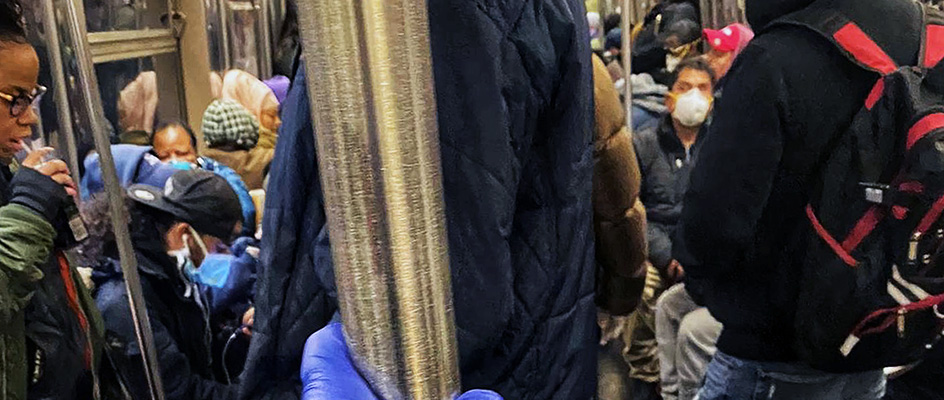By Albert Vargas
In New York City, the essential workers who use the M.T.A. to go to work are disappointed that it is not running as usual due to staff shortages because of COVID-19. Reduced service has lead the essential workers to accumulate on the trains and buses, despite the COVID-19 pandemic. The M.T.A. has said it is running on an “essential schedule” in order to transport those working through the pandemic.
“The train is running every 30 minutes, and sometimes it takes 40 minutes, and when it arrives, the train is full,” said Victoria Jones, 42, who lives in the Bronx but works as a maintenance worker in a clinic in Brooklyn. “I wonder, how can we follow the six feet distance from each other if we are all together on the train.”
These essential workers are at high risk of catching this dangerous virus that has impacted the lives of thousands of New Yorkers. The virus has infected more than 150,000 city residents, according to the New York City Health Department and an estimated 16,000 have died so far, combining confirmed and probable deaths. The crisis has forced authorities to mandate that non-essential workers stay home and avoid going out unless they have to do essential things such as get medication from the pharmacy, purchase food or visit the hospital. The state has ruled essential workers to stay six feet away from one another, but not everyone can follow that rule.

The D train on the morning of April 24
Jones and many other essential-workers worry about their health. “I feel authorities are not taking this seriously,” said Jones, who is a single mother of two kids.
According to the M.T.A., many lines are working with limitations because it has a staff shortage due to the pandemic. Trains are working with healthy crew and those who have availability. It has affected the usual running of the service and has also affected those who work for essential businesses. Can you give details about how they have changed the schedules?
“This is getting worse,” said Michael Flores, 27, lives in Brooklyn but works in a fast-food restaurant in lower Manhattan. “Sometimes when I’m on the train, people have a cough and sneeze in there, and we can’t say anything because this is public transportation. I don’t blame them, but this will keep spreading.”
“Some people do not feel symptoms when they get ill,” said Jimcya Proano, 21, who is a biology major at Saint Joseph’s College in Brooklyn. “You never know if an essential worker may not experience any symptoms and may be ill.”
The lack of testing is putting commuters at risk, says Proano. She believes the worst part of the situation is that doctors do not test everybody, even those that have symptoms. “If people follow the protocols, there’s less risk to get the virus,” she said. Essential workers who get the virus may be living their regular lives using the M.T.A. and having contact with others without knowing they are contagious, she added.
M.T.A. workers have been hit hard by the virus, 68 workers have passed away and thousands more have been infected as of April 21. Jose Rodriguez, 39, who is an M.T.A. bus driver in Queens, says that he does not feel safe. “M.T.A. authorities have not taken this seriously,” said Rodriguez. “We have received gloves and masks from them but told to use them weekly.” Rodriguez, who lives with his wife and two kids, feels scared he might bring the virus home. “The majority of drivers and operators have bought their masks and gloves,” he added.
According to Rodriguez, the M.T.A. decided to work on a Sunday schedule every day due to the staff shortage. “The staff shortage has impacted not only the public transportation but the life of the M.T.A. workers,” said Rodriguez. “We are working extra, we have not had time to be with our family, and we are scared to be with them.”
Rodriguez admits that M.T.A. workers are doing their best to control the spread and protect themselves, but they cannot avoid the crowds on the buses or train. Rodriguez believes that it is the government’s fault if people crowd on the train or buses. They are open because of the government. “The governor should shut down everything at least for two weeks,” said Rodriguez, who also believes that authorities should take stricter precautions to protect New Yorkers.
The quarantine is now extended until May 15, but essential workers have to keep working. This week, Governor Andrew Cuomo ordered that all New Yorkers, especially essential workers, should cover their mouth and nose when they are outside and while working to avoid the spread of the virus.



